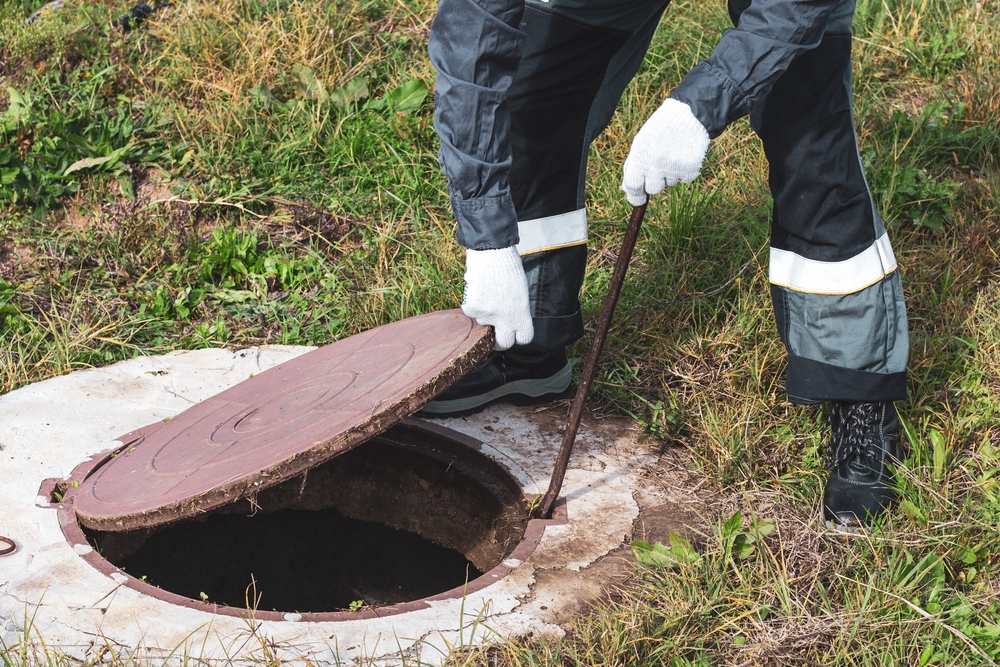The Importance of Regular Septic System Maintenance

Septic systems play a crucial role in managing wastewater for homes and businesses that are not connected to a municipal sewer system. Proper septic system maintenance ensures that these systems function efficiently, preventing environmental contamination and costly repairs. In this blog, we will discuss the importance of regular septic system maintenance, its benefits, and the key steps involved in maintaining your septic system.
What Is a Septic System?
A septic system is an on-site sewage facility used in areas without centralized sewer systems. It typically consists of a septic tank and a drain field. Wastewater from household activities flows into the septic tank, where solids settle at the bottom, forming sludge. The liquid effluent then moves into the drain field, where it is naturally filtered and treated by the soil.
Why Septic System Maintenance Is Essential
Prevents System Failures
Regular maintenance helps prevent septic system failures, which can lead to sewage backups, foul odors, and environmental pollution. By ensuring that your septic system is functioning correctly, you can avoid the inconvenience and expense of dealing with a failed system.
Protects Health and Environment
A malfunctioning septic system can contaminate groundwater, which is a source of drinking water for many communities. This contamination can lead to serious health issues. Regular maintenance helps to protect the environment and public health by ensuring that wastewater is properly treated and disposed of.
Saves Money in the Long Run
Neglecting septic system maintenance can result in costly repairs or the need for a complete system replacement. Regular inspections and pumping can extend the lifespan of your septic system, saving you money in the long run.
Key Components of Septic System Maintenance
Regular Inspections
It is recommended to have your septic system inspected by a professional at least once every three years. During the inspection, the technician will check for any signs of wear and tear, potential issues, and ensure that all components are functioning correctly.
Pumping the Septic Tank
The septic tank should be pumped every three to five years, depending on the size of the tank and the number of people using the system. Pumping removes the accumulated sludge and prevents it from overflowing into the drain field, which can cause system failure.
Water Conservation
Conserving water reduces the load on your septic system, allowing it to function more efficiently. Simple steps like fixing leaks, installing water-saving fixtures, and spreading out laundry loads can significantly reduce the amount of wastewater entering the system.
Proper Waste Disposal
Only human waste and toilet paper should be flushed down the toilet. Avoid flushing items like diapers, wipes, feminine hygiene products, and chemicals, as they can clog the system and disrupt the bacterial balance needed for effective waste breakdown.
Protecting the Drain Field
The drain field is a critical component of the septic system. Avoid driving or parking vehicles on the drain field, as the weight can compact the soil and damage the pipes. Additionally, planting trees and shrubs with deep roots near the drain field should be avoided, as roots can infiltrate and clog the system.
Signs Your Septic System Needs Maintenance
Slow Drains and Backups
If you notice that your sinks, showers, and toilets are draining slowly, it could be a sign that your septic system needs maintenance. Sewage backups are a more severe indication of a problem and should be addressed immediately.
Unpleasant Odors
Foul smells around your property, particularly near the septic tank or drain field, can indicate that your septic system is not functioning correctly. These odors are often a result of sewage escaping from the system.
Lush, Green Grass
While a healthy lawn is desirable, unusually lush and green grass over the drain field can be a sign of a septic system issue. This may indicate that wastewater is surfacing and providing excess nutrients to the grass.
Standing Water
Pools of water or soggy areas around the drain field are signs that the system is overloaded or failing. Standing water can lead to environmental contamination and should be addressed promptly.
How to Find a Qualified Septic System Maintenance Provider
Research and Recommendations
Start by researching local septic system maintenance providers. Look for companies with good reviews and ask for recommendations from friends, neighbors, or local health departments.
Check Credentials
Ensure that the provider you choose is licensed and insured. A reputable company should have the necessary credentials and experience to perform septic system maintenance safely and effectively.
Ask for References
Ask the provider for references from previous clients. Speaking with other customers can give you an idea of the quality of service you can expect.
Get a Written Estimate
Before hiring a provider, get a written estimate that outlines the services to be performed and the associated costs. This can help you avoid unexpected expenses and ensure that you are getting a fair price.
Conclusion
Regular septic system maintenance is essential for preventing system failures, protecting health and the environment, and saving money in the long run. By understanding the importance of maintenance and following the key steps outlined in this blog, you can ensure that your septic system functions efficiently for years to come. Don’t wait until a problem arises—schedule regular inspections and maintenance to keep your septic system in top condition.
Need Septic Tank Systems Experts in Canyon Lake, TX?
Here at Countryside Construction Inc., we take pride in our comprehensive approach to septic design, installation, and servicing. Since 1981, we’ve been dedicated to supporting builders, homeowners, and commercial contractors throughout Canyon Lake, New Braunfels, North San Antonio, and surrounding areas, including Boerne, Bulverde, and Wimberley. Our reputation for quality, performance, and reliability is built on our commitment to managing every aspect of your wastewater needs—from soil analysis and permit acquisition to design and installation. Whether you’re starting a new project or need expert servicing, we’re here to handle it all from start to finish. Reach out to us today, and let’s ensure your septic system is in expert hands.
